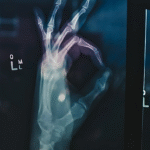
Can Humans Become Immortal? Research Suggests Immortality Could Be Achieved by 2050
The Age-Old Question: Is Immortality Within Reach?
For centuries, humanity has been fascinated by the concept of immortality—the idea of living forever and defying the inevitable reality of death. The famous poet Madhu Kabir once said, “When you are born, you have to die; who is immortal?” But recent scientific breakthroughs are challenging this eternal truth. According to a growing body of researchers, immortality may no longer be a mere fantasy but a future reality.
The startling claim is that if a person can live another 25 years—up to the year 2050—there is a possibility that human beings will achieve immortality. This groundbreaking theory is reshaping how we understand human longevity and the very nature of life itself.
How Could Immortality Become Possible?
The possibility of immortality hinges on advances in biotechnology, genetic engineering, and medical science that aim to halt or reverse the biological aging process. Here are the key scientific breakthroughs that form the foundation of this hope:
Genetic Engineering: Repairing and Renewing the Body
Scientists believe that by 2050, genetic engineering techniques will allow us to repair and renew damaged cells and tissues caused by aging. This approach involves editing or replacing defective genes that contribute to the natural decay of our bodies, essentially restoring youth at the cellular level.
Such innovations could regenerate organs, improve cellular function, and prevent age-related diseases, thereby extending the human lifespan far beyond current limits.
Nanomedicine: Tiny Machines for Big Healing
Another promising area is nanomedicine, where microscopic machines, or nanobots, could be injected into the bloodstream to monitor, repair, and maintain bodily functions. These nanobots could clear blockages, eliminate damaged cells, and even fight infections or cancers from within the body, promoting health and longevity.
Stem Cell Therapy and Regenerative Medicine
Stem cell treatments offer the ability to regenerate damaged tissues and organs. By harvesting and stimulating stem cells, scientists could replace worn-out parts of the body, giving people the chance to heal from injuries and age-related degeneration more effectively than ever before.
Gene Therapy: The Blueprint of Life Rewritten
Gene therapy involves modifying the genetic code to prevent or correct diseases. In the context of aging, gene therapy could slow down or even reverse the effects of aging by targeting genes responsible for cellular senescence and death.
Who Can Afford Immortality? The Economic Reality
Currently, these advanced technologies are expensive and complex, making immortality initially accessible only to the wealthy elite. Researchers acknowledge that the cost of treatments to halt or reverse aging will be prohibitive for many.
However, history shows that medical innovations tend to become more affordable and widespread over time. Vaccines, antibiotics, and other breakthroughs started as costly treatments but eventually reached the masses.
If these trends continue, it is expected that by 2050, life-extending therapies will be more affordable and accessible to the general population, potentially transforming the human experience for billions of people.
Who Stands to Become Immortal?
According to experts, people currently under the age of 40 have the best chance of achieving immortality if they can survive the coming decades until these technologies mature.
For these individuals, the possibility of living indefinitely or dramatically extending their healthy lifespan is becoming less science fiction and more tangible reality.
What Could Immortality Mean for Humanity?
If humans truly achieve immortality, it would radically change civilization in ways we can barely imagine today. Some of the profound implications include:
- Population Growth and Resource Management: Extended lifespans could lead to significant population increases, raising challenges around food, water, and energy resources.
- Social and Economic Impact: Retirement, work, healthcare, and social structures would need to adapt to people living centuries or longer.
- Ethical and Philosophical Questions: The meaning of life, death, and human identity would be reconsidered in a world where death is no longer inevitable.
These questions remain speculative, but the scientific pursuit of immortality invites society to start contemplating these future challenges now.
The Road Ahead: A Dream or Reality?
While the science is promising, immortality is not guaranteed. Researchers are still in the early stages of these technologies, and significant hurdles remain, from biological complexities to ethical considerations.
Time will be the ultimate judge of whether humanity’s quest for immortality will succeed or remain an elusive dream.
For now, the vision of living beyond natural limits continues to inspire researchers, technologists, and dreamers alike, offering hope that the age-old boundary between life and death might one day be crossed.












